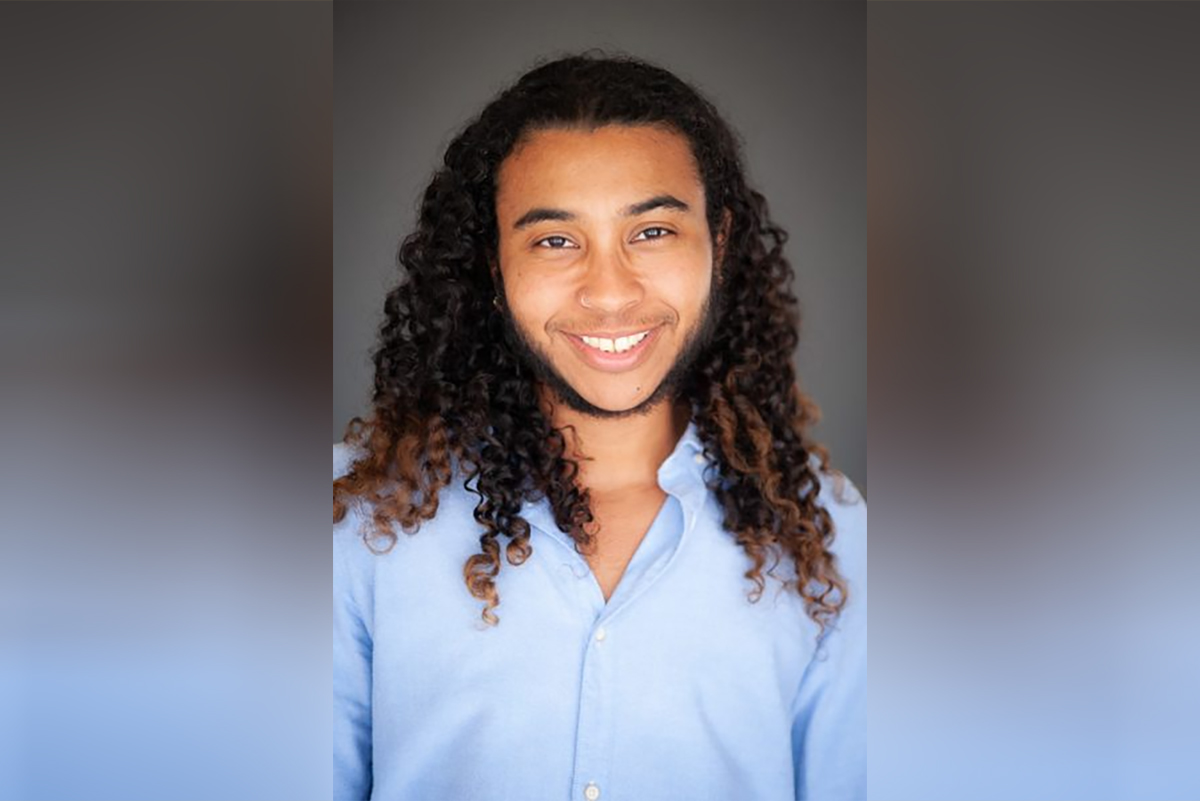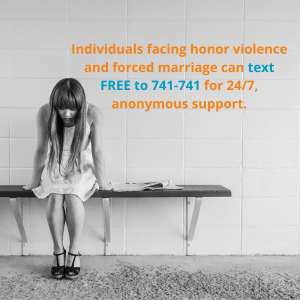Counselor at AHA Foundation on Girls Facing Abuse: “The circumstances they endure can often be life or death”

Egypt Leithman, AHA Foundation Helpline case manager intern.
10-7-2021
Imagine being the first point of contact and the first voice of support for a girl facing forced marriage and seeking a way out. AHA Foundation case managers’ impact on the lives of at-risk girls is immeasurable, and few know this better than Egypt Leithman.
Egypt Leithman is a case manager intern at AHA’s Helpline. He is also a doctoral student studying clinical psychology at Pepperdine University. We asked him to share what it means to be on the frontline of his life-saving work with the AHA Foundation Helpline.
Counselor at AHA Foundation on Girls Facing Abuse: “The circumstances they endure can often be life or death”
I felt a personal obligation as a global citizen and an advocate for marginalized communities to help women and girls fleeing female genital mutilation (FGM), honor violence, forced marriages, and child marriages.”
How did you find this opportunity and why did you take this position at AHA Foundation?
Egypt: I found out about this job through two of my peer mentors at Pepperdine University. They both worked as case manager interns at AHA’s Helpline and told me about their work. I was really interested and decided to apply for the position.
Before applying, I researched the work that AHA does and its mission. A lot of it resonated with me. I was eager to begin the position and start making a difference. I felt a personal obligation as a global citizen and an advocate for marginalized communities to help women and girls fleeing female genital mutilation (FGM), honor violence, forced marriages, and child marriages.
Individuals facing honor violence and forced marriage can reach
out to counselors at AHA’s Helpline at
help@theahafoundation.org
When did you first hear about the abuses that AHA Foundation fights to end: FGM, child and forced marriage, honor violence? Did you know they are happening in the U.S. before you started to work at AHA Foundation?
Egypt: Yes, I have been acutely aware of these abuses happening in the United States since I was a teenager. I earned a minor in nonprofit management and began volunteering at Tahirih Justice Center in my city where I encountered many survivors and attended several training sessions on the atrocities being committed in the United States against women and girls.
I think it is easier for us to believe that FGM, honor violence, child and forced marriage don’t happen here and that they happen in a far-off foreign land.”
Why in your opinion is there such low awareness about these abuses in the U.S.?
Egypt: I believe there is low awareness because the dialogue around these abuses for a long time was phrased as an “over there” or “foreign” problem. The general public sees these abuses as issues that do not affect United States citizens and do not occur on U.S. soil.
I think it is easier for us to believe that FGM, honor violence, child and forced marriage don’t happen here and that they happen in a far-off foreign land. This is detrimental to the most vulnerable people. As a result of this perception and attitude, the survivors of such abuses are silenced or shunned for speaking out about their experiences; some have even been dismissed when reaching out for help.

Nobody at AHA Foundation is closer to the pain, fear, and struggles of the girls facing honor violence or forced marriage than the case managers at our Helpline. Helpline is a 24/7 service for girls at risk of these abuses, and it has been open for over a decade without interruption—thanks to the generosity and commitment of AHA’s donors.
“We have provided assistance in fleeing from dangerous circumstances, relocating to safer spaces, getting life-changing surgeries for FGM survivors, helping to meet basic necessities…”
The name “the Helpline” seems self-explanatory, but could you elaborate on what kind of services you provide to women and girls in need?
Egypt: Managing the hotline consists of screening the incoming help requests that we receive on a daily basis. We provide different resources depending on the help that is requested. Each request is different and we treat each one as an individual case. We have provided assistance in fleeing from dangerous circumstances, relocating to safer spaces, getting life-changing surgeries for FGM survivors, helping to meet basic necessities, providing advocacy tools for survivors, and so much more.
Besides just reaching out to you, what else can these women and girls who are at risk do to protect themselves?
Egypt: I am always humbled by the bravery that these women and girls embody when they reach out to us. I encourage them to stay safe. The circumstances they endure can often be life or death.
I believe it is very important for women and girls to know that there is a helpline available and that our services exist.”
You started with us about a year ago now—how have you grown into the role? Was it tough transitioning into this position? What helped you?
Egypt: Over the past year, I have witnessed firsthand the role that AHA plays in situations where women and girls have nowhere else to turn. Over that time, I gained a much deeper appreciation for the work that my colleagues and I do here at AHA. Together, we have really exemplified the power of a team ethos and I find it very rewarding.
I believe it is very important for women and girls to know that there is a helpline available and that our services exist. The helpline is comprised of compassionate interns who have training and experience with these issues (i.e.: FGM, honor violence, child and forced marriages).
What have you learned in your position that you think is worth sharing with our supporters and advocates?
Egypt: I have an understanding of the magnitude of the problem of gender-based violence not only abroad but also in the United States. I have had the privilege of interacting with the women and girls we have served and they have made clear how important our work was to their lives. Women and girls often confide that Ayaan’s story of bravery and courage has empowered them to reach out for help.
AHA Foundation’s Helpline is only possible because of the generosity of our donors. Please keep this critical work going strong. Give a gift today.

